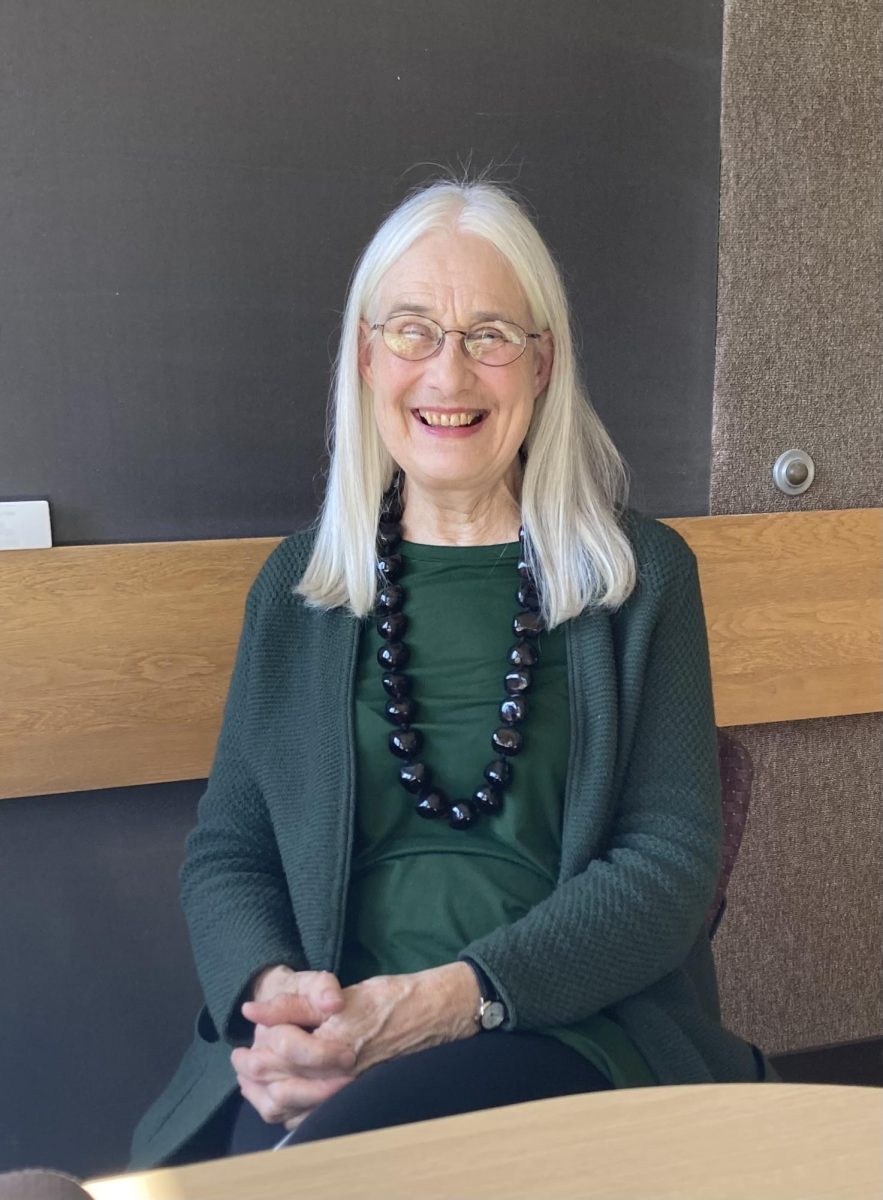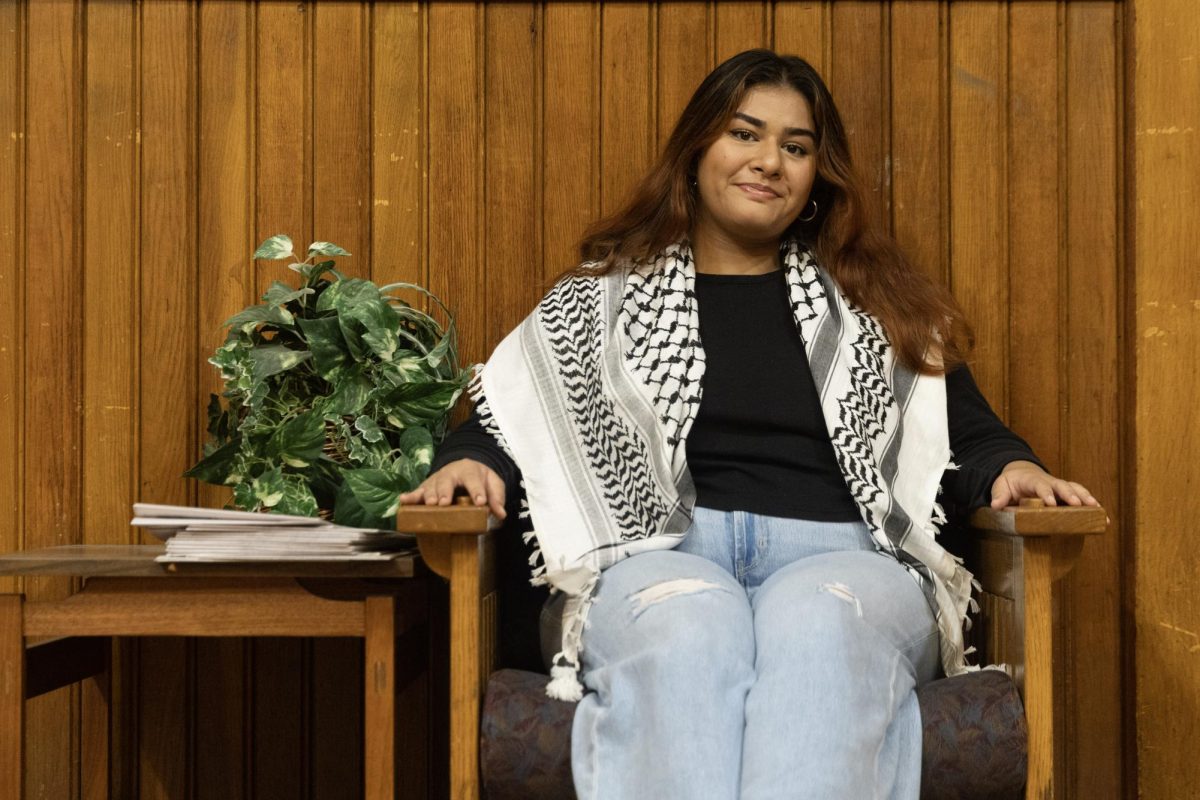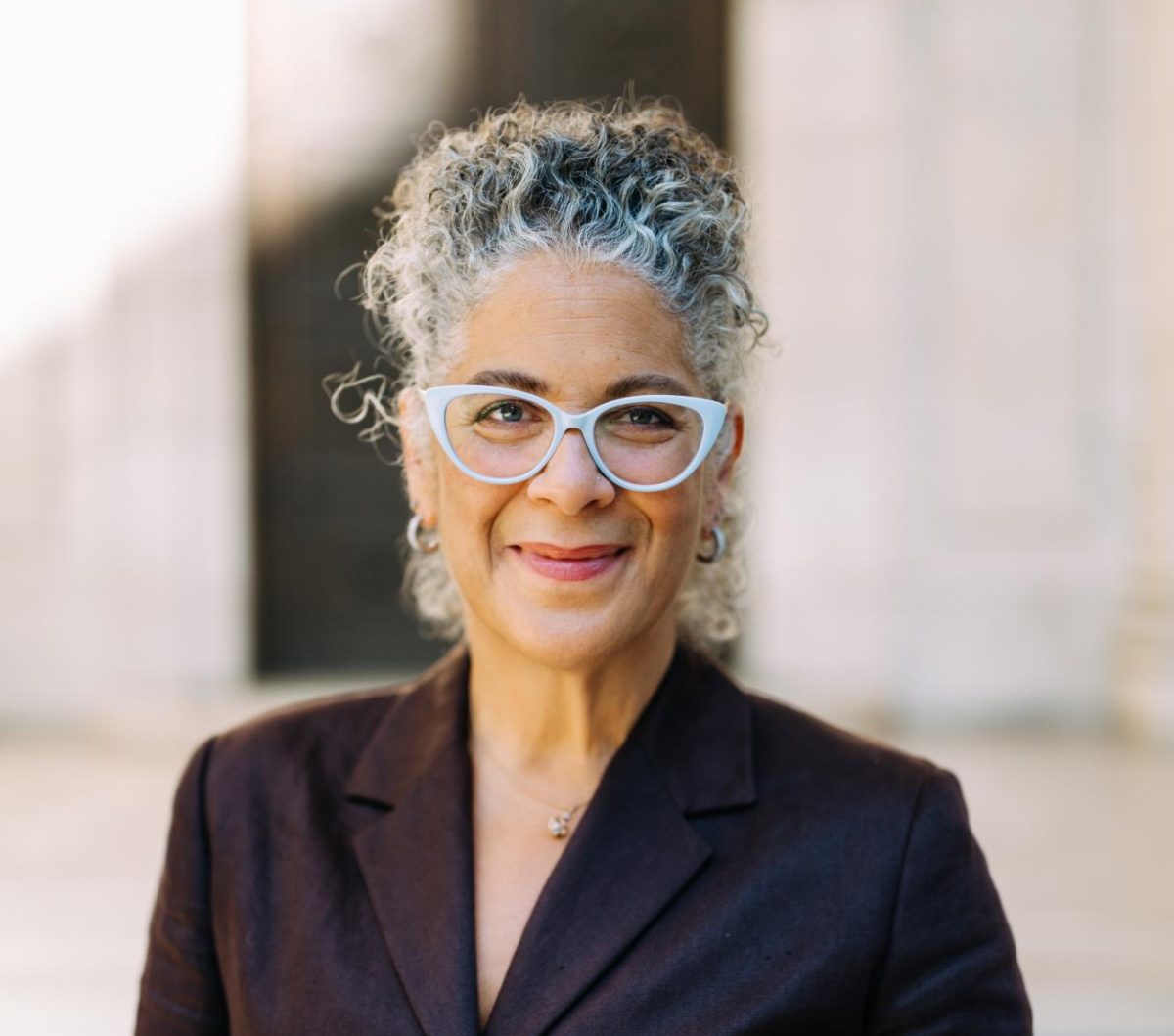Caroline Wood Newhall is an assistant professor of History whose work focuses on 19th-century U.S. history. Her first book is on the experiences of African-American POWs during the Civil War. For Veterans Day, she was invited by the Oberlin Heritage Center to give a talk about her research at Kendal at Oberlin this Tuesday.
This interview has been edited for length and clarity.
Can you tell me about your talk for Veteran’s Day?
I was invited to go speak at Kendal at Oberlin. They’ve been putting on a speaker series for the last couple of years targeting issues of race and equality, especially in the wake of George Floyd’s death. I was asked to present on my current research, which deals with African-American soldiers during the Civil War who were captured by the Confederacy. I was speaking about my manuscript, which I’m currently in the process of finishing up, basically looking into how African-American soldiers were captured at far higher rates than we initially realized. Black soldiers as POWs in the Civil War are not an unknown. People have known that they’d been taken prisoner since the war, but the estimates were really unclear. Confederates really obscured that information. I started to realize just how many men were not counted by going back through these records and trying to find these men as individuals. I’m currently writing my book on 15 individual men out of more than 2,200 who I’ve identified, and I found that about 70 percent of those men did indeed survive their captivity, which was still a devastating mortality rate. Given what we knew about Black captivity, it was kind of shocking to me just how many men did make it out alive. Especially toward the end, the Confederacy was actually committing to taking these men alive because they needed Black labor. The Confederacy was on its heels by the end of the war, and so a lot of these men are giving voice to that experience after the war when they applied for military pensions. I’ve been exploring those findings and talking about what these men did as individuals but also in their communities as collectives. I speak about captivity communities as this central organizing force for these men in order to support each other in captivity and to survive, whether they’re escaping or whether they’re maneuvering through captivity.
How did you first start to research this topic?
Oh my gosh, it took forever. I bit off way more than I could chew, but I was so into the research, so it was totally fine. I wrote my senior thesis in undergrad on a prison in the Confederacy called Andersonville Prison — if anybody’s heard of a Civil War military prison, it is probably Andersonville. It was infamous for the huge number of deaths of Union POWs who were held there — close to 30 percent of these men, so on par with the mortality rates for Black POWs. I wrote my senior thesis on the military tribunal that tried one of the commandants of that prison, and there were four Black POWs who testified. I remember seeing this when I was doing my research, but I didn’t have a chance to get into it. When I returned to grad school, I still wanted to do something with POWs, with the military prisons, with laws of war. I was really interested in that. I realized I hit a wall beyond the point of being taken captive. Whenever Black soldiers encountered Confederates on the battlefield and were taken prisoner, most of them just kind of disappeared from all written records. We know men from the 54th Massachusetts ended up in Andersonville and in Charleston. But for the vast majority of men, there’s just no telling what happened to them. So I basically started going through what are known as the Compiled Military Service Records. I scrolled through the individual records and I found about 2,200 out of those 10,000, but that was just a starting off point, I realized. We just don’t know what these men think, what they’re going through. The four POWs who testified at Captain Henry Wirz’s trial after the Civil War are kind of the most extensive testimonies we have. The ones who make it back quickly can report. I found that there were just over 700 men who made it back, who applied for pensions after the war to basically support themselves and their families. They were wounded, they needed financial help. I started looking into those and realized they were giving testimonies about captivity, not all of them. I basically started to build out this much broader understanding of Black POWs’ experiences in captivity across the entire Confederacy, realizing they’re not just held in prisons, they’re held in military camps. They are enslaved by Confederate officers. They are sold into slavery by Confederate officers to private citizens. Some are reclaimed by former slaveholders. It was just a diverse set of captivity experiences.
How do you feel like America treated the experiences of these Black POWs?
When I first started this research, I would tell people about it, and they would say, “Were there any Black POWs?” because people just kind of assumed they were all executed after the fact, so even just fighting against that problem in the records too is really tough. All the ways in which POWs emerge in most historical records that are readily available, they’re spoken about, they’re not speaking for themselves. That’s part of why I really want to get into the pensions to understand their voices and use those. That’s been kind of my challenge with the book — recentering the narrative around them. They’ve often been viewed as these passive victims of violence and exploitation, without really understanding on the flip side what they’re doing as agents of their own destiny in captivity. They don’t just disappear, become slaves, and that’s the end of their story. They return to their communities. They are helping their families along in the Reconstruction period and well beyond. These men are living into the 1930s. And so the Union and the Confederacy are basically, to some degree, using Black POWs as this impasse to justify their various policies regarding prisoner exchanges. There’s a lot of resentment among white POWs on both sides, and the POW exchange actually ends up getting suspended, not just because of Black soldiers, but they’re a major part of it. When you’re a soldier in Andersonville dying because your side won’t trade you back, basically because there are 10 Black POWs to every 1000 white POWs, a lot of men hold a lot of resentment for this. Interestingly, after the Wirz trial, much of the rhetoric about this just kind of blames the Union and Black soldiers for the issue, and that’s really the entire narrative about them. No one really cares about what happens to these men in captivity. Even Black veterans are really focusing on atrocities towards Black soldiers and the violence that the Confederacy uses, but they’re not considering captivity after the fact. They are really focusing on the heroic narrative of Black soldiers, and in the present, I would say that’s kind of persisted in that we just didn’t really know much about what happened to them.












